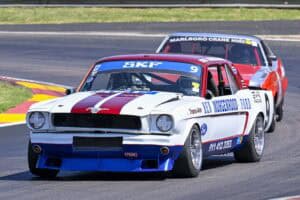The regulations for the 2014 season have resulted in the most radical changes in Formula One for decades.

Most readers will be aware the former 2.4-litre V8 engines have been replaced by a 1.6-litre V6 turbo-charged unit driving through an eight speed gearbox – one more cog than last year.
The term KERS (Kinetic Energy Recovery System) becomes ERS (Energy Recovery System).
Aerodynamics also face a change under the new regulations.
The front wing will be narrower and the front chassis height reduced, meaning most cars will have a droop snoot and could be even uglier than the stepped nose of two years ago.
The rear wing is also changed with the lower beam wing mounting replaced by vertical mounting struts.
With such changes afoot, the prospect of predicting who will be on top in 2014 becomes a nightmare.
One major factor has to be the reliability of the new engines.
No amount of testing on the dyno can truly demonstrate the long-term effects that racing conditions produce.
This year engines will be provided by Renault, Mercedes-Benz and Ferrari.
Next year will see the arrival of a unit from Honda, definitely in the McLaren and perhaps others, depending on this season’s results.
For all those bemoaning the loss of the larger capacity engines of previous years, let’s not forget that in the early eighties straight four-cylinder engines of 1.5-litres were producing over a 1000cc horsepower in qualifying trim – the only problem being the fragility of the turbocharger.
That problem new technology and materials have almost eliminated and although the new engines are limited to 600cc horsepower we can expect to see respectable lap times, probably reducing in future seasons.
Almost every measure introduced by the FIA to reduce competition car speeds has been wasted effort, since new technology always finds a way of pushing the boundaries within the regulations.
The World Rally Championship is a point in case: the governing body banned Group B cars, but very rapidly the less extreme cars of later years were even quicker over the same special stages.
The 2014 F1 season could be one of the most exciting for many a year – and totally unpredictable.
If you want my opinion go to your nearest fairground where you will find me in a tent staring into a cloudy crystal ball.
Support Local Journalism
Add The Citizen as a Preferred Source on Google and follow us on Google News to see more of our trusted reporting in Google News and Top Stories.








